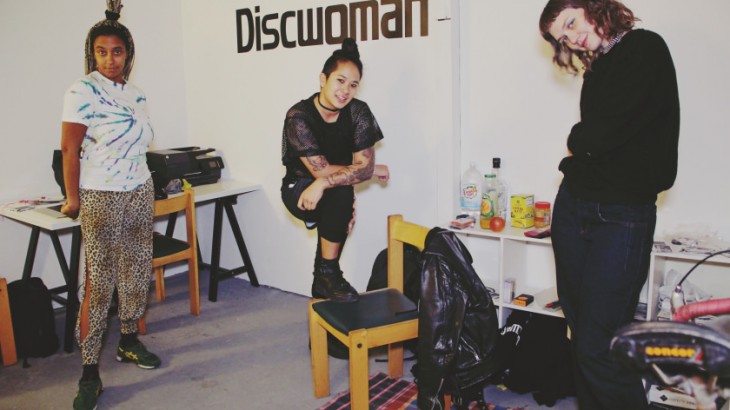“In 2015, only 10.8% of major festival line ups included women. And only 18% of electronic labels have women on their roster.” These unsurprising realities are two things New York based collective Discwoman are addressing as they work to make electronic music more inclusive. As it turns out, that same collective is the focus of the first episode of Smirnoff Sound Collective‘s documentary mini-series Tribes and those facts feature at the open of their episode.
Tribes is a new series from Smirnoff Sound Collective (and in this episode, we only get one subtle flash of product placement) that dives into some of the world’s most interesting music collectives with specific interest in promoting diversity and inclusiveness within dance music. Founded by Frankie Decaiza Hutchinson, Emma Olsen and Christine Tran, Discwoman is both booking agency and platform, representing and showcasing cis women, trans women and genderqueer talent and acting as “a support system” for upcoming female-identified DJs and producers. The importance of their work is unquestionable, as one interviewee The Black Madonna (Marea Stamper), a DJ for 20 years says, “If I had understood that there is a history, and that we’ve always been here, then it wouldn’t have seemed such a strange idea to be a producer or DJ when I was 18.”
Tribes Ep. 1: Discwoman follows the trio as they journey from their homes in New York to Mexico City. The journey is spliced with footage of pioneering British composer and electronic musician Daphne Oram and interviews with The Black Madonna, Star Eyes, Demian Licht, Sandunes, Nicole Moudaber & Ninasonik. In Mexico, producer Demian Licht states, “In Europe the girls read about feminism but in Latin America, the girls live feminism because here you need to be a warrior.” She believes that the first Discwoman event in Mexico City will act as the beginning of the end when it comes to the gender imbalance in the electronic music scene. Here’s hoping she’s right because as the opening of the documentary points out “Women, men, gay, straight… If you have music that’s made by all of these different kinds of people then you have a richer field of music.”
Utterly empowering and wonderfully put together, you can watch the 12 minute documentary on YouTube.
Image: The Fader

